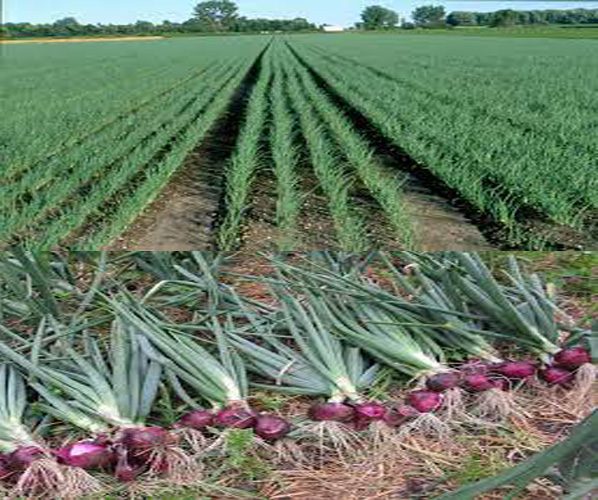Lemon trees are a delightful addition to any garden, and with proper care and attention, you can successfully grow them even in Singapore’s tropical climate.
To grow lemons in Singapore, choose a sunny location and plant a lemon tree in well-drained soil or in a container with good drainage. Water the tree regularly, provide occasional fertilization, and protect it from extreme heat or cold. With proper care, the tree will bear fruit within 1-3 years, and you can enjoy fresh lemons in your garden.
Whether you’re an experienced gardener or a beginner, this step-by-step guide will help you navigate the process of growing lemons and enjoy the fruits of your labor.
How to Grow Lemon in Singapore Step by Step Guide
Choosing the Right Lemon Variety
The first step in growing lemons in Singapore is selecting the right variety that is suitable for the local climate. Some recommended varieties include the Meyer lemon, Lisbon lemon, and Eureka lemon. These varieties are known for their ability to thrive in warm climates and produce juicy, flavorful fruits.
Selecting the Ideal Location
Lemon trees require full sunlight to thrive, so it’s essential to choose a location in your garden that receives at least six to eight hours of direct sunlight every day. Ensure the spot is well-drained and sheltered from strong winds to protect the tree and prevent damage to the delicate branches.
Preparing the Soil
Before planting your lemon tree, prepare the soil by loosening it and adding organic matter such as compost or well-rotted manure. This improves drainage and enriches the soil with essential nutrients. Aim for a slightly acidic soil with a pH level between 5.5 and 6.5, as lemons prefer slightly acidic conditions.
Planting the Lemon Tree
Dig a hole that is twice the size of the lemon tree’s root ball and place the tree in the hole, ensuring it sits at the same level it was growing in the container. Backfill the hole with soil, gently firming it around the roots. Water the tree thoroughly after planting to help settle the soil and remove any air pockets.
Providing Adequate Watering
Proper watering is crucial for the growth and health of your lemon tree. While lemons require regular watering, it’s essential not to overwater them as they are susceptible to root rot. Allow the soil to dry slightly between waterings and provide deep watering sessions rather than frequent shallow watering.
Fertilizing the Lemon Tree
To promote healthy growth and fruit production, fertilize your lemon tree regularly. Use a citrus-specific fertilizer with a balanced ratio of nitrogen, phosphorus, and potassium. Apply the fertilizer according to the instructions on the packaging, usually in early spring and late summer.
Pruning and Training the Tree
Pruning helps shape the lemon tree, promotes airflow, and encourages new growth. Remove any dead, diseased, or crossing branches. Prune the tree in late winter or early spring before new growth begins. Additionally, consider training the lemon tree into an open center or modified central leader shape to improve light penetration and air circulation.
Protecting the Lemon Tree from Pests
Lemon trees can be susceptible to various pests, including aphids, scale insects, and citrus leaf miners. Monitor your tree regularly and take appropriate measures if you notice any signs of infestation. Use organic pest control methods whenever possible, such as introducing beneficial insects or using horticultural oils.
Harvesting and Storing Lemons
Lemons are typically ready for harvest when they develop their full color and have a firm texture. Twist or cut the fruits from the tree, being careful not to damage the branches. Store harvested lemons in a cool, dry place away from direct sunlight. They can be stored at room temperature for several weeks or refrigerated for longer shelf life.
Troubleshooting Common Issues
Despite your best efforts, lemon trees can face various issues, such as yellowing leaves, leaf drop, or fruit drop. These problems can be caused by factors like overwatering, nutrient deficiencies, or pest infestations. Identifying the underlying issue and taking appropriate corrective measures, such as adjusting watering or addressing nutrient deficiencies, can help restore the tree’s health.
Can I grow lemons in pots instead of planting them in the ground?
Yes, lemon trees can be grown in pots, which makes them suitable for small gardens or balconies. Ensure the pot has sufficient drainage holes, and use well-draining potting mix specifically formulated for citrus trees.
How long does it take for a lemon tree to bear fruit?
Lemon trees generally start bearing fruit within 2 to 3 years of planting, although it can vary depending on the variety and growing conditions.
Do I need to protect my lemon tree during the rainy season?
While lemon trees can handle some rain, prolonged periods of heavy rain can lead to root rot. Consider providing some protection, such as moving potted lemon trees to sheltered areas or covering them with a waterproof material.
Can I grow lemons from seeds?
Yes, you can grow lemons from seeds, but keep in mind that the resulting tree may not produce fruits true to the parent plant. It’s best to start with a grafted lemon tree for consistent fruit quality.
Are lemon trees prone to any specific diseases?
Lemon trees can be susceptible to diseases such as citrus canker and citrus greening. Regular inspection, proper sanitation, and prompt treatment if necessary can help prevent and manage these diseases.
Conclusion
Growing lemons in Singapore is a rewarding endeavor that requires proper planning and care. By selecting the right variety, providing ideal growing conditions, and implementing proper maintenance practices, you can successfully grow lemon trees and enjoy a bountiful harvest of juicy lemons. Remember to be patient and enjoy the journey of nurturing these citrus delights in your garden.




